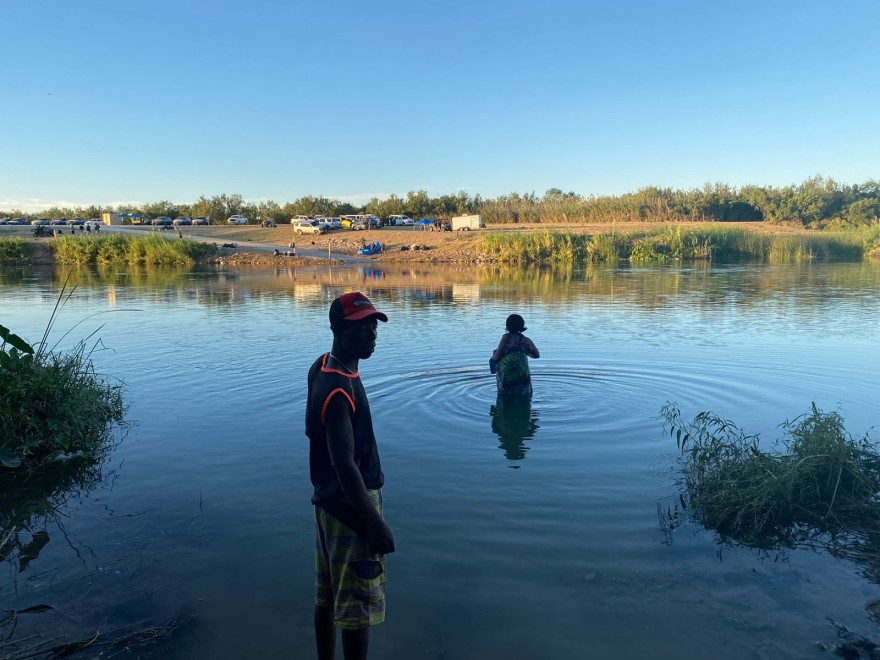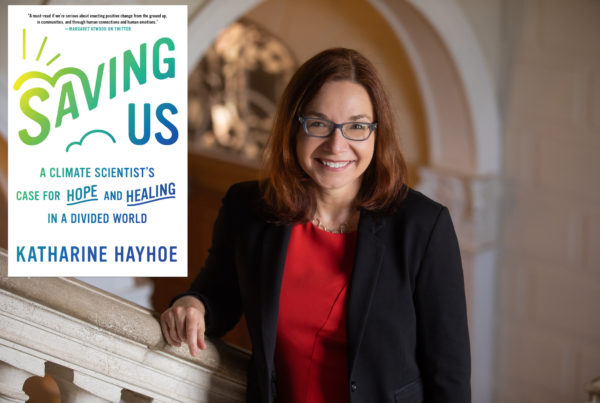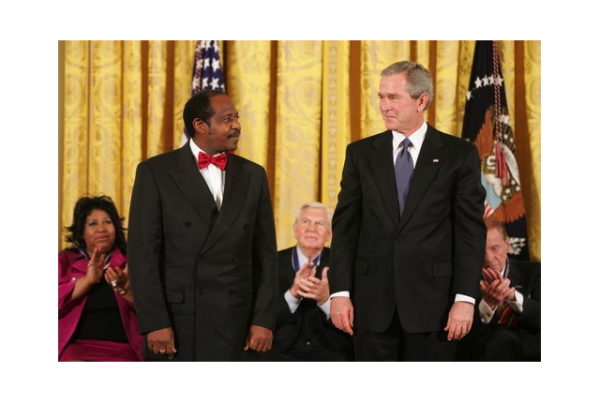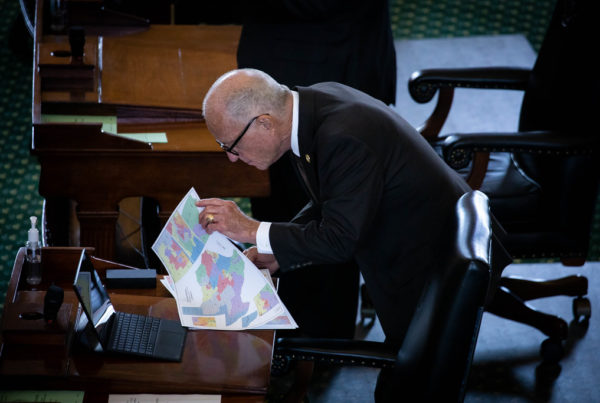U.S. Special Envoy for Haiti, Daniel Foote, raised eyebrows around the world when he made public his resignation letter from the job. He called the United States’ actions relating to migrants gathering in Del Rio, Texas, “inhumane” and “counterproductive.”
In response the gathering of some 15,000 migrants, mostly from Haiti, seeking shelter under an international bridge, the Biden administration led one of the largest and fastest mass deportations in U.S. history.
Raymond Robertson is the director of Texas A&M’s Mosbacher Institute for Trade, Economics and Public Policy. He told the Texas Standard the resignation letter was unusual but that the current situation on the border is a continuation of persistent issues.
Texas Standard: Former Ambassador Foote’s resignation letter is remarkably forthright, coming from a Biden appointee and a diplomat. Is it fair to say it was pretty uncommon?
Raymond Robertson: Yeah, it is unusual. We don’t see people resigning with this type of statement very often. So it is definitely worth commenting on.
How does this reflect on the Biden administration’s already often rocky optics on immigration policy?
It actually represents a continuity with the last administration. So the current administration is holding on to a lot of the same types of policies and approaches towards migration that the last president had.
Why do you think the Biden administration has been reluctant to take more aggressive action when it comes to changing the immigration policies of the Trump administration?
I think they had the sense that there was a lot of popular support for more restrictive immigration policies, and I think that there was no real evidence that would lead them to change their minds on that. I think there’s also a lot of concern about other migrants coming across the border prior to that. We’d already had hit record levels, especially in the Del Rio sector in South Texas. And so when the Haitian migrants came in, they were already coming into a very difficult situation.
In a sense, are you saying the Biden administration is considering the political implications and that, in their assessment, those outweigh the humanitarian considerations?
Well, unfortunately, I think that’s exactly right. I think that there is a sense that by allowing more migrants in — even in a humanitarian crisis, as Haiti is currently experiencing, would lead to people criticizing him [Biden] even more about being soft on migration. Republicans have been pointing to the change in presidency as one of the reasons for the current surge in migrants. And I think the Biden administration is trying to push back on that to establish and send a signal to the rest of the country that this is not an open door policy.
The White House spokesperson seemed to suggest that the special envoy should have done more to blow the whistle on the situation in Haiti and alerted the Biden administration. What do you make of that response?
Well, clearly, the resignation reveals a lot of underlying frustration about the situation. So there is always going to be finger pointing in any direction. The bottom line is that steps were not taken to help address the situation that the migrants are facing. I mean, more than 800,000 people were affected by the earthquake in Haiti in September, on September 19. And so the fact that we only had ten to fifteen thousand migrants coming in is actually somewhat surprising and really kind of indicative of maybe more should have been done earlier by someone in the administration.
Can we talk a bit about why so many Haitians ended up there on the border? This didn’t happen overnight, but there’s a long history.
Yeah, that’s correct. So actually, the migrants that came in apparently came in through South America. So they went into South America, came up through Central America, through Mexico, in order to enter in[to] the United States. And they’re actually part of a growing number and broadening group of immigrants that are coming in. For a long time, over the summer and the last year or two, we’ve seen migrants come in from Northern and Central America, you know, like Honduras, Guatemala, and El Salvador. But now with the political crisis in Nicaragua, we see Nicaraguans coming in and, of course, the earthquake in Haiti. Haitians are seeing that maybe this is a way for them to achieve a better life.














